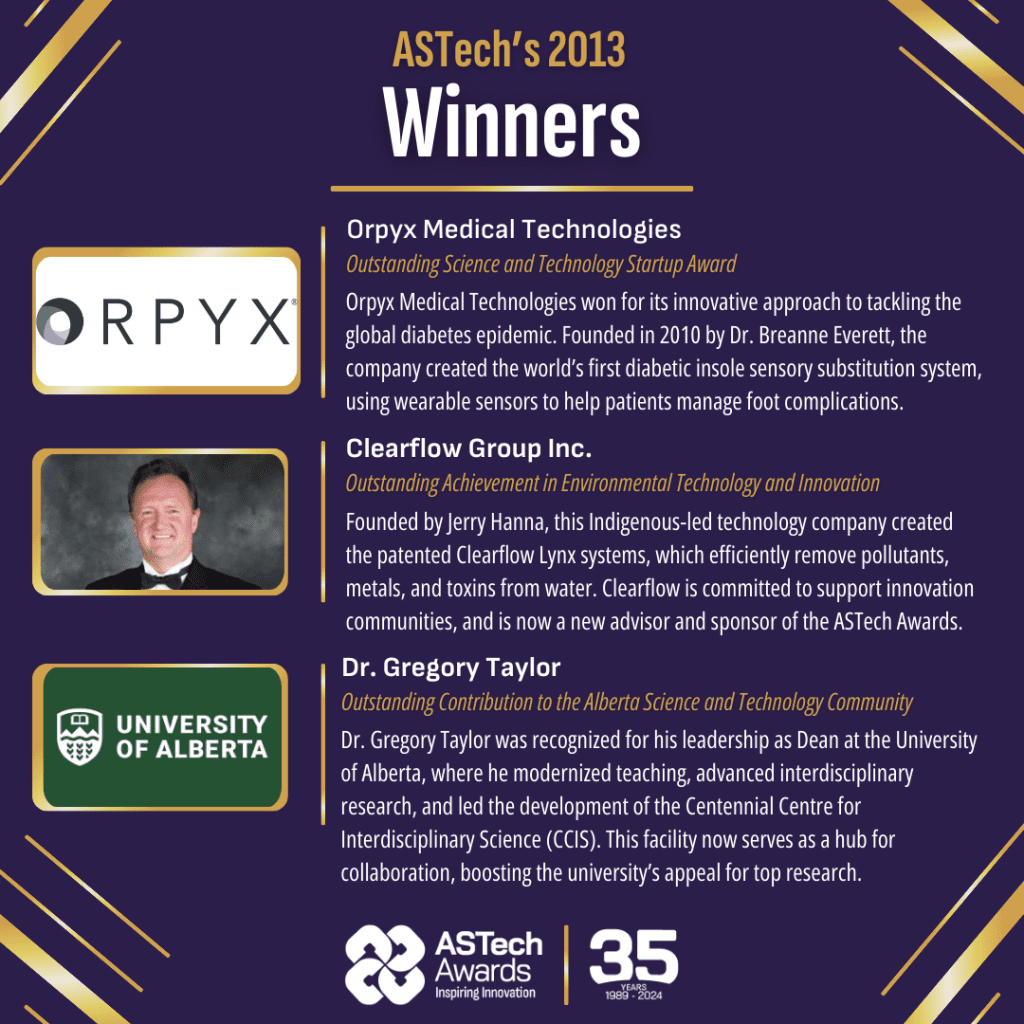Additional 2013 Winners Include:
- Dr. Sheelagh Carpendale, recipient of the award for Innovation in Information and Communications Technology, was recognized for her groundbreaking work in information visualization and multi-touch interaction. As a professor in the Department of Computer Science at the University of Calgary, she combined her multidisciplinary background in fine arts, design, and computer science to develop innovative technologies that make complex information more accessible. Now a professor at the School of Computing Science, Simon Fraser University, and has received numerous awards, including the CS-CAN (Computer Science Canada) Lifetime Achievement Award and Fellow of the Royal Society of Canada.
- Ms. Megan Engel, winner of the Leaders of Tomorrow Award, a researcher at the University of Alberta’s National Institute for Nanotechnology, she contributed to understanding protein and nucleic acid folding to combat diseases like Parkinson’s and Alzheimer’s. Beyond her scientific achievements, Ms. Engel, a Rhodes Scholar, founded the University of Alberta Tolkien Society, fostering creativity and philanthropy while advancing interdisciplinary study. Ms. Engel expertise inmolecular simulation, non-equilibrium physics, de novo nanomaterials design, and machine learning, she is now an assistant professor at the Department of Biological Sciences, University of Calgary.
- Dr. Randy Mikula, winner of the Innovation in Oil Sands Research Award, has been a pioneer in advancing oil sands technology for over three decades. His work, which began with fundamental research, has led to commercializing processes like the centrifuge method for fluid fine tailings, saving the industry millions and improving environmental outcomes. Now leading Kalium Research Inc., Dr. Mikula remains dedicated to responsible oil sand development and actively engages in public outreach to educate others about the technological advancements in the field.
|
|

